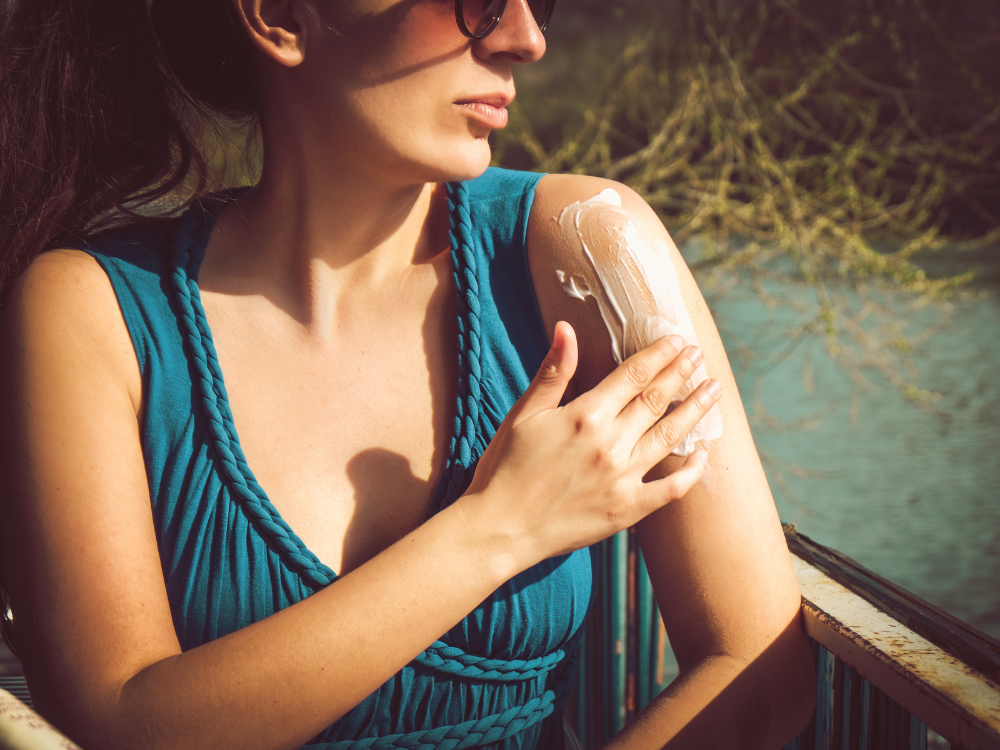Do organic sunscreens work?

How do organic sunscreens work?
Organic and natural sunscreens and sun creams work by creating a physical barrier on your skin. They contain particles of titanium dioxide and zinc oxide that sit on your skin and reflect the sun’s harmful UVA and UVB rays, protecting your skin from burning and damage. Both types of UV rays can lead to skin cancer, UVA is known to also cause premature aging, and UVB causing sunburn.
How do chemical sunscreens work?
Many non-natural sunscreens use ultra fine particles, known as nanoparticles, however organic certification bans the use of nanoparticles as the long term health effects are just not known. Non natural sunscreens also contain active chemical ingredients which can be absorbed into your bloodstream including oxybenzone, octocrylene and octinoxate.
How do I choose an organic sunscreen?
Did you know that the term ‘organic’ is virtually unregulated on beauty and skincare products, including sunscreen, sun creams and sun lotion? This means a sun lotion can say it’s ‘organic’ and contain only 1% organic ingredients, plus many of the other ingredients that you may want to avoid. When choosing an organic sun lotion, always look for a certification body logo. This is your assurance that the product has been independently verified to meet organic standards. Logos to look for include Soil Association Cosmos Organic, ICEA (Italian Organic Certification Body), NCS (German natural cosmetics standard)
Are organic and natural sunscreens effective?
Yes - when used correctly, mineral sunscreens can protect your skin from UVA and UVB rays. Unlike chemical sunscreens, mineral sunscreens start working right away after you’ve applied them. However, as with all sun safety your individual requirements will vary. Always use a high factor that’s suitable for your skin type, stay out of the sun at the hottest part of the day and reapply regularly.
Are natural sunscreens waterproof?
Yes, natural sunscreens can be waterproof, and can keep you protected whilst swimming. As with all sunscreens it’s generally a good idea to re-apply after swimming, showering or drying with a towel.
What are the benefits of using an organic sunscreen?
The main benefit is that the natural ingredients - titanium dioxide and zinc oxide when used at non-nano particle level - don’t absorb into your skin, unlike the chemicals found in non-organic sunscreens. You’ll also be avoiding ingredients that can cause irritation or that can be bad for human health. Organic sunscreens are also much better for the environment - they’re not damaging to marine life when you go swimming in the sea, rinse off at teh beach showers, or at home.
Do non organic sunscreens damage marine life?
Yes, unlike zinc oxide and titanium dioxide, the main ingredients in chemical sunscreens can cause significant harm to marine ecosystems. In fact, in 2021, Hawaii banned the sale and distribution of sunscreens containing octinoxate and oxybenzone due to its damage to marine wildlife, coral reefs and seagrass. Oxybenzone and octocrylene have also been found to be present in many species of fish, which is not great for them and could affect the food chain. So if you’re a wild swimmer swimming in rivers, lakes and sea all through the year, or simply enjoy a swimming in a warm sea on holiday, choosing an organic sun cream is always a better choice for the ocean and rivers.
So when you consider how organic sunscreens can offer you protection against UVA and UVB, and how chemical sun screens can be damaging to marine life and contain toxic chemicals you may want to avoid - surely they're the natural choice?



























